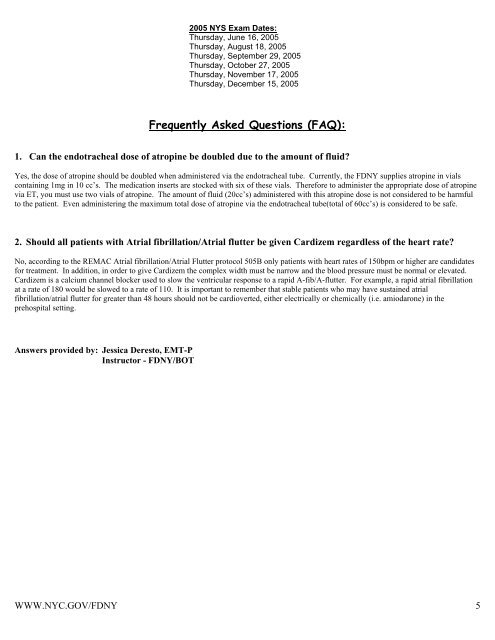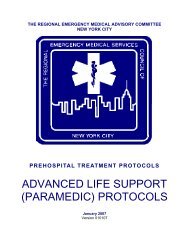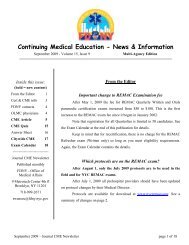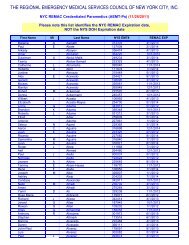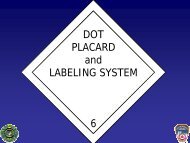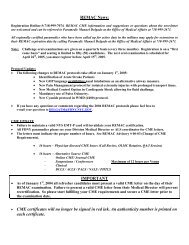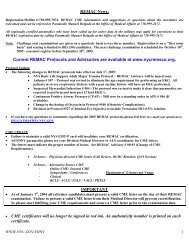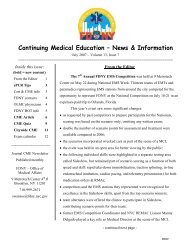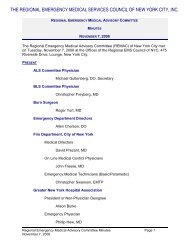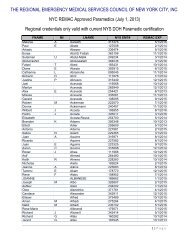remac refresher testing dates - REMSCO - The Regional Emergency ...
remac refresher testing dates - REMSCO - The Regional Emergency ...
remac refresher testing dates - REMSCO - The Regional Emergency ...
- No tags were found...
Create successful ePaper yourself
Turn your PDF publications into a flip-book with our unique Google optimized e-Paper software.
2005 NYS Exam Dates:Thursday, June 16, 2005Thursday, August 18, 2005Thursday, September 29, 2005Thursday, October 27, 2005Thursday, November 17, 2005Thursday, December 15, 2005Frequently Asked Questions (FAQ):1. Can the endotracheal dose of atropine be doubled due to the amount of fluid?Yes, the dose of atropine should be doubled when administered via the endotracheal tube. Currently, the FDNY supplies atropine in vialscontaining 1mg in 10 cc’s. <strong>The</strong> medication inserts are stocked with six of these vials. <strong>The</strong>refore to administer the appropriate dose of atropinevia ET, you must use two vials of atropine. <strong>The</strong> amount of fluid (20cc’s) administered with this atropine dose is not considered to be harmfulto the patient. Even administering the maximum total dose of atropine via the endotracheal tube(total of 60cc’s) is considered to be safe.2. Should all patients with Atrial fibrillation/Atrial flutter be given Cardizem regardless of the heart rate?No, according to the REMAC Atrial fibrillation/Atrial Flutter protocol 505B only patients with heart rates of 150bpm or higher are candi<strong>dates</strong>for treatment. In addition, in order to give Cardizem the complex width must be narrow and the blood pressure must be normal or elevated.Cardizem is a calcium channel blocker used to slow the ventricular response to a rapid A-fib/A-flutter. For example, a rapid atrial fibrillationat a rate of 180 would be slowed to a rate of 110. It is important to remember that stable patients who may have sustained atrialfibrillation/atrial flutter for greater than 48 hours should not be cardioverted, either electrically or chemically (i.e. amiodarone) in theprehospital setting.Answers provided by: Jessica Deresto, EMT-PInstructor - FDNY/BOTWWW.NYC.GOV/FDNY 5


